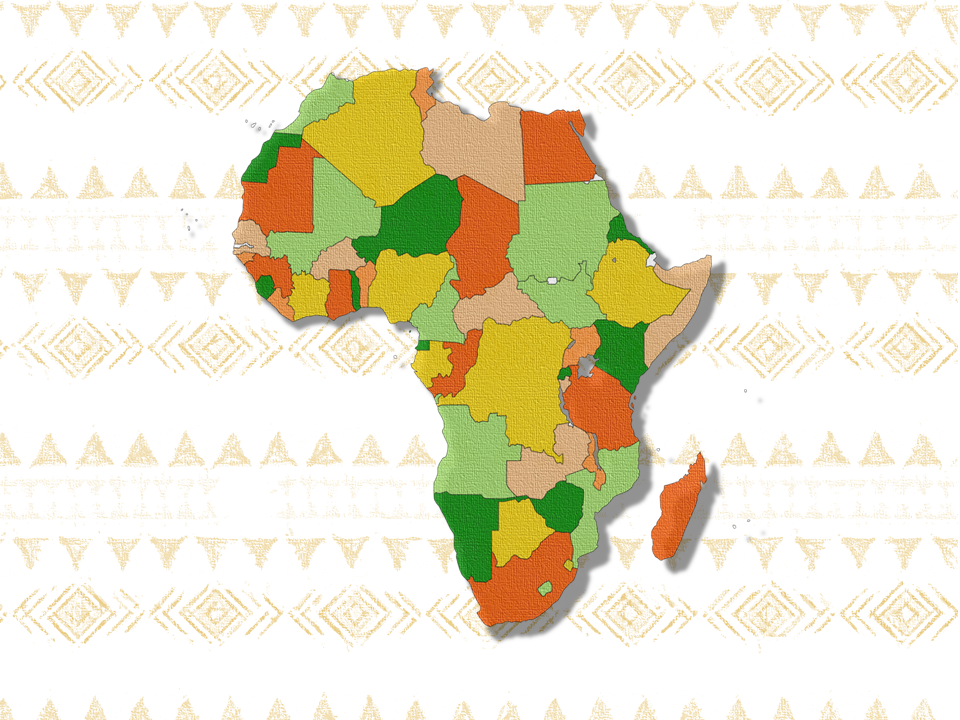Pick Up
601. TICAD Weeks

The 8th Tokyo International Conference on African Development (TICAD8) will be held this weekend. Since 1993, TICAD has been held under the leadership of the Japanese government in collaboration with UN agencies and other organizations.
On the occasion of TICAD8, we have launched the Information Page on Agricultural Research in Africa, which summarizes our research activities on Africa.
Furthermore, on August 5, we successfully held the TICAD8 official side-event, Healthy Soils and Food Security in Africa: Potential of Regenerative Agriculture, in cooperation with the Sasakawa Africa Association (SAA).
As we have already announced several times in this Pick Up, on August 30 (Tuesday), JIRCAS will organize another TICAD8 official side-event, Managing African Soil for Food Security and Environmental Sustainability - Opportunities and Challenges of Agronomy to Solve Low Fertility/Nutrient Bottlenecks, supported by the Japan Science and Technology Agency (JST) and Japan International Cooperation Agency (JICA).
This theme is an area where JIRCAS has been particularly outstanding in its involvement in African agriculture. Over the past few decades, crop production in Africa has been sluggish compared to other regions, partly due to the low fertility of the soil environment. Another limiting factor has been the low use of fertilizers, many of which are imported and not always affordable for resource-poor farmers. Furthermore, the diversity of soil conditions not only among regions, but also within regions and fields, limits the scope of application of optimal fertilization technology.
In recent years, environmental pollution and greenhouse gas emissions caused by excessive fertilizer application in developed countries have led to an imbalance in the global cycle of nitrogen, phosphorus, and other chemical fertilizers, and innovations for efficient fertilizer use and greenhouse gas reduction are being sought from a planetary boundary perspective. The biological nitrification inhibition (BNI) technology, which is being developed by JIRCAS in collaboration with international agricultural research organizations and institutes in Asia and Latin America, is a solution to the problems of environmental pollution and greenhouse gas emissions caused by excessive fertilizer application in agricultural systems. On the other hand, in African countries where fertilizers have not always been applied in the right amounts, the recent sharp rise in fertilizer prices has made it increasingly difficult for farmers to obtain fertilizers, making it a challenge to maintain and improve soil health and productivity.
This event will discuss innovations that make effective use of scarce fertilizers and enable sustainable improvement of land and labor productivity from the perspective of both global health and food and nutrition security in Africa, based on JIRCAS long-standing research activities in Madagascar and Burkina Faso, as well as the efforts of companies and NGOs engaged in fertilizer sales and dissemination in Africa. The panelists will discuss how innovation can enable sustainable improvement of land and labor productivity through effective use of scarce fertilizers from the perspective of both global health and food and nutrition security in Africa.
TICAD8 Official Side Event “Managing African Soil for Food Security and Environmental Sustainability” - Opportunities and Challenges of Agronomy to Solve Low Fertility/Nutrient Bottlenecks -
Date:August 30 (Tue), 2022, 17:00-19:00 (JST)
Organizer:Japan International Research Center for Agricultural Sciences (JIRCAS)
Supported by:Japan Science and Technology Agency (JST), Japan International Cooperation Agency (JICA)
Web link (Japanese): https://www.jircas.go.jp/ja/event/2022/e20220830
English: https://www.jircas.go.jp/en/event/2022/e20220830
In addition, many organizations involved in African development will be holding online seminars and other events this week and the week after. Please take advantage of this opportunity to learn more about the challenges of African agriculture.
Contributors: NAKASHIMA Kazuo (Director, Food Program), TSUJIMOTO Yasuhiro, NAKAMURA Satoshi and NAGUMO Fujio (Crop, Livestock and Environment Division), KANAMORI Norihito(Information and Public Relations Office), IIYAMA Miyuki (Director, Information Program)
